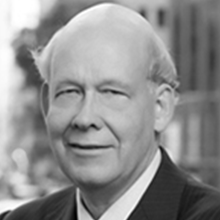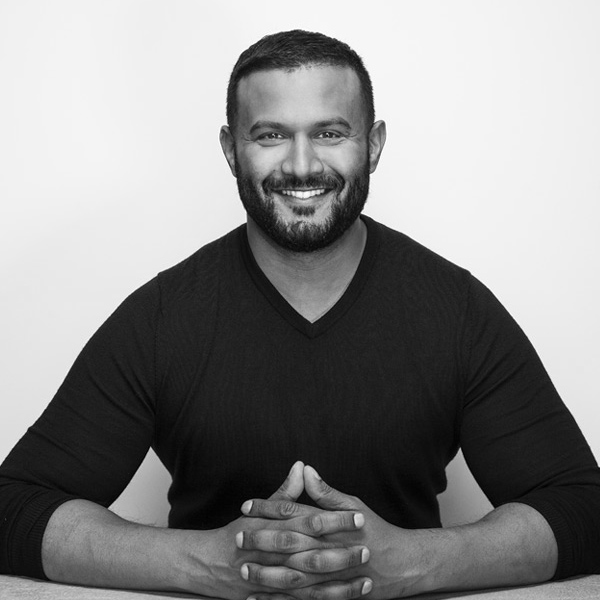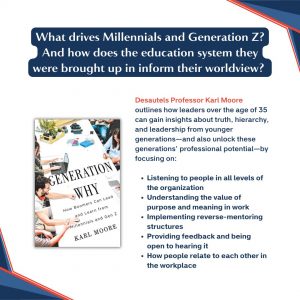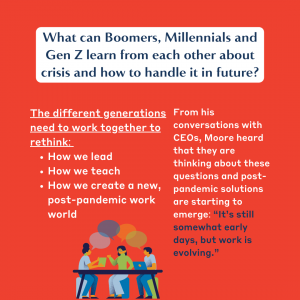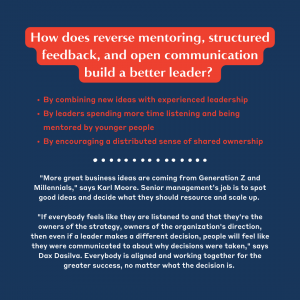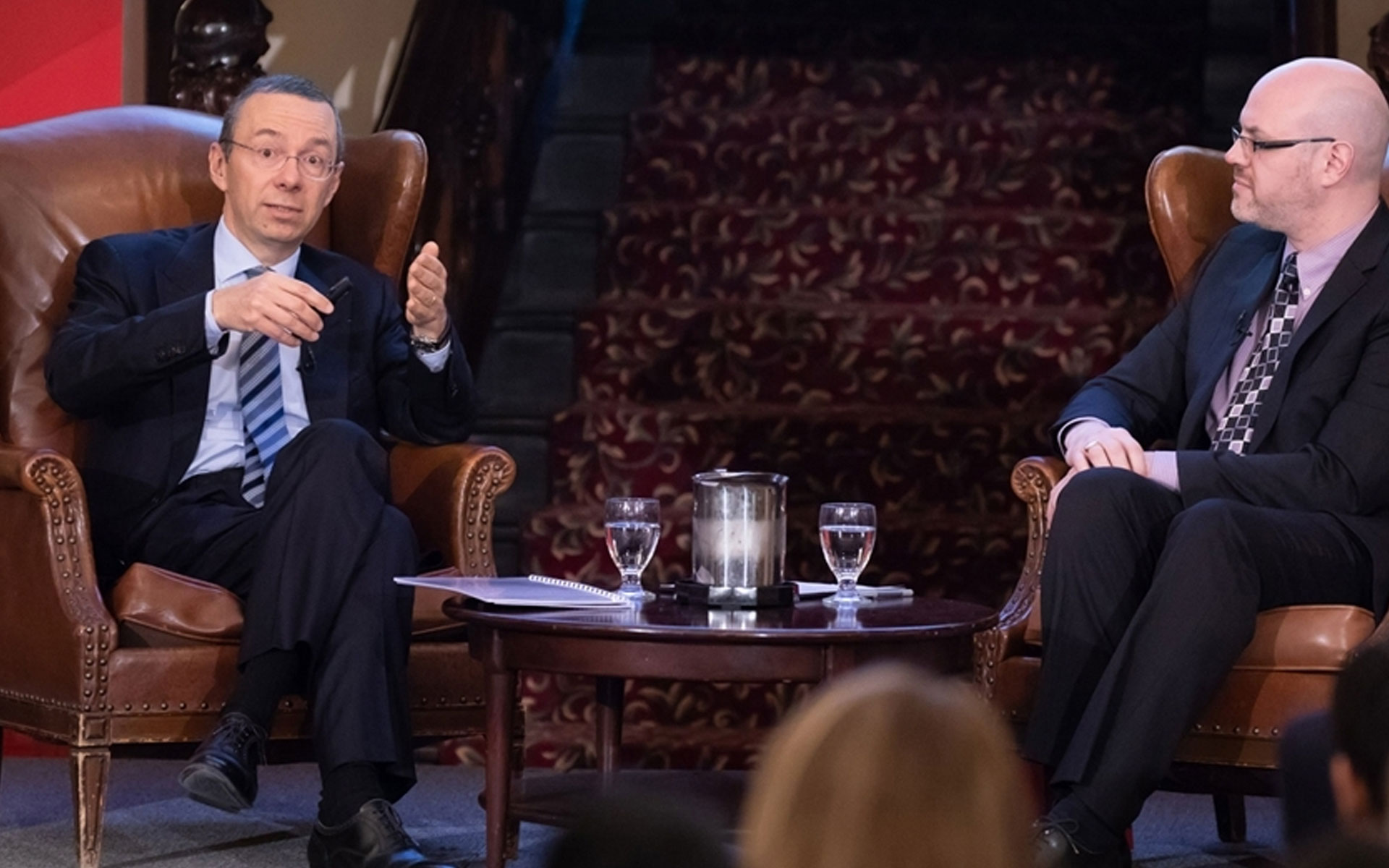What can older generations learn from Millennials and Gen Z about leadership, strategy, and dealing with crisis? And how can these younger generations unlock their professional potential by engaging in meaningful work and taking larger roles in organizational strategy and change?
Subscribe:
On the Delve podcast, Desautels Professor Karl Moore and Lightspeed Commerce and Age of Union Founder Dax Dasilva discuss communication beyond traditional hierarchies, the value of reverse mentorship and receiving feedback, and what real equality, diversity, and inclusion can look like in an organization.
In Moore’s new book, Generation Why: How Boomers Can Lead and Learn from Millennials and Gen Z, he posits a philosophy that has played out in real life: that people over 45 with a university degree, were taught a modern worldview in their education, while people under 35 with a university degree were taught a postmodern worldview. In his investigation, he challenges traditional views of who has truth and knowledge and why.
In conversation, Moore and Dasilva share their thoughts on these worldviews, their experiences, and how to engage, manage, and learn from people across the generational spectrum. Listen to the podcast for their full conversation and read on for an excerpt.
Karl Moore: Gen Zs and the younger Millennials are starting to get into managerial positions, and they’re clearly incredibly important to organizations—they make up about half or more of the organization. This comes across increasingly in conversations with CEOs and also in conversations with undergraduates. Young people are looking at the world so differently than older people have.
Dax Dasilva: One of the things that’s been consistent and that actually plays really well to working with Millennials and Gen Zs, which we’ve always done from the very beginning, is based on listening, which Karl wrote a lot about in his book. You can have hierarchy in business, but being able to listen across silos, across hierarchies, listen to the perspectives of people, that’s good for including people of different generations in the solution, engaging them. But it’s also a big part of why diversity and inclusion is successful at a business by active listening and by bringing people in.
Delve: Workplaces are typically multi-generational, perhaps more now than ever, since people are putting off retirement. How are Millennials and Gen Z changing ideas about how to manage people in a business or another organizational setting? How are they changing how everyday management looks?
Karl Moore: They’re looking for purpose, they’re looking for social impact, they’re changing what we’re looking for, and it’s no longer just about share price, it’s about stakeholder value. That’s not just empty rhetoric. So what you want to do is let lots of ideas come from anywhere—anyone can be a strategist. The senior management job is not to have the good ideas, but to spot good ones and decide what they should resource and scale up. So senior management has a very important role. We hold them responsible: they have the experience and the position hopefully to do this, and I think they generally do. More ideas are coming from Gen Zs and younger Millennials. But it’s still up to the Boomers and the Xers to decide where we’re going. That combination together is a winner. But it means that the older people have got to spend more time listening and being reverse-mentored than they were in the past. It’s a change that’s occurred over the last 10-15 years in my experience.
Dax Dasilva: The greatest outcome that you can have from listening is a distributed sense of shared ownership. If everybody feels like they were listened to and that they’re owners of the strategy, they’re owners of the organization’s direction… Everybody is aligned and everybody’s working together for the greater success, no matter what the decision is. There are ways to bring together an organization through some of these techniques. And it really leverages the way that that these hierarchical yet non-hierarchically-strategized organizations are being built now.
Delve: One of those techniques would be managing upward and another would be reverse mentoring, both of which Karl writes about. Could both of you talk about the phenomenon of managing upward and your experiences of it. Is it something that should be more embedded within an organization?
Karl Moore: In my long career, I’ve always had a boss, I still have a boss now. And I manage upward, in the nicest possible way. I would be sending them information, making requests, so that I recognize they have authority and they have relationships, they have resources that I want to tap into. So I’m going to spend time thinking about how I approach them and what information I provide. Even at my age, as a Boomer, I’m still managing upward. And I think I will, for years to come.
Dax Dasilva: I have to be conscious that I am being managed upward and I need to allow that to happen because these folks are trying to help me build something better, ultimately. We’re going through a wholesale change in how people communicate, with new approaches to communication. And if they’re trying to bring me in on some of what’s going to work today, then I need to be receptive to that—people need to feel that I’m going to be aware and reflect on what they’re saying and incorporate it. That’s when I think you get this value of being an authentic leader to people, because not only are you transparent but you are also receptive, and that it’s not a waste of time for them to try to improve the organization by talking to you.
Delve: Looking at leadership potential, could you both share your insights about the future of leadership that may emerge from these younger generations and the way that they, hopefully, as in Karl’s book, are being managed differently today and in the near future?
Karl Moore: A central one is purpose and the purpose of the organization. It’s that the organization is helping people that we’ve neglected in the past—that’s helping indigenous people, women, people of colour, people with disabilities, and so on, where we’re trying to have some nobility beyond just making money. The younger generations say they want to do something beyond money-making. And at work they want to be treated like a human being, to be respected and encouraged. I think we’re much more open to having real conversations, and genuinely caring for people and having a bit of, in the best sense of the word, some love in the workplace—genuine concern and care for one another and caring for your neighbour. Beyond just seeing them as a unit of work. As in, I’m a human being not a human resource.
Dax Dasilva: We’ve talked a lot about meaning and purpose. One of the credos at Lightspeed is “make it matter,” the things that you do in your day, do they matter? And I think that if the next generation of leaders, if it mattered to them, that all of their daily actions and things that they were doing weren’t meaningless. That they build that ethos into how they design work for the people that come to work for them. Then the workplace is going to be full of purpose and will attract talent. That’s the real promise of this generation as they become the next generation of leaders.
For the full conversation with Karl Moore and Dax Dasilva, listen to the Delve podcast episode.
This episode of the Delve podcast is produced by Delve and Robyn Fadden. Original music by Saku Mantere.
Delve is the official thought leadership platform of McGill University’s Desautels Faculty of Management. Subscribe to the Delve podcast on all major podcast platforms, including Apple podcasts and Spotify, and follow Delve on LinkedIn, Facebook, Twitter, Instagram, and YouTube.








